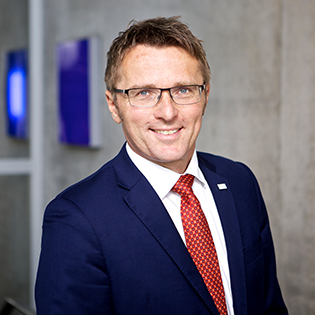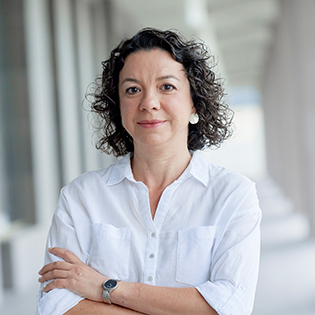How can a skilled worker disaster be averted? By creating equivalence!
Thinking Space 4
Skilled worker shortages currently exist at the intermediate qualification level in particular, and this is a situation which many sectors view with concern. Many young people prefer to enter higher education and seem to view dual training as a second-best option. How can the public be better persuaded to perceive these two education and training pathways as equivalent? This is the issue being addressed by this Thinking Space.
There is a threat that digital and ecological transformation processes may stall or even fail completely if training figures in key initial and advanced occupations cannot be increased. The intention therefore is that the Thinking Space should discuss how the attractiveness of VET can be enhanced by making the equivalence between vocational and academic training, something which is enshrined in the German Qualifications Framework (DQR), more visible to society.
Relevant stakeholders from both education areas will be debating this question in a stimulating format involving factual checks and voices from practice. Data from BIBB projections relating to future skilled worker requirements and analyses of the trend towards academisation will both be included. A further plan is to accord particular emphasis to the firm legal foundation of the DQR as an instrument for transparency in the education system. Although the DQR has helped with visibility of equivalent education pathways amongst experts, public awareness remains virtually non-existent. Perhaps it may be useful to look at the approach adopted by our neighbouring countries?
The objective is to work with the discussion participants to draw up possible solutions that will provide greater visibility of vocational education and training opportunities in society.
Programme overview
Part 1 (09:40 – 10:40)
Panel discussion " Preventing a skilled labour catastrophe? Establish equivalence!"
- Moderator: Torben Padur (BIBB)
- Uwe Bartoschek (SMWA)
- Dr. Volker Born (ZDH)
- Dr. Barbara Dorn (BDA)
- Prof. Dr. Micha Teuscher (HRK)
- Thomas Sondermann (BMBF)
- Petra Jendrich (Ministry of Education - Rhineland-Palatinate)
- Elke Hannack (DGB)
Problem analysis and numbers (Fact checker): Dr. Regina Dionisius (BIBB)
Swiss training and labor market: Dr. Sonja Engelage (EHB)
Part 2 (10:55 – 11:55)
Panel discussion " Preventing a skilled labour catastrophe? Establish equivalence!"
- Moderator: Torben Padur (BIBB)
- Impulse/Panel: Prof. Dr. Friedrich-Hubert Esser (BIBB)
- Uwe Bartoschek (SMWA)
- Dr. Volker Born (ZDH)
- Dr. Barbara Dorn (BDA)
- Prof. Dr. Micha Teuscher (HRK)
- Thomas Sondermann (BMBF)
- Petra Jendrich (Ministry of Education - Rhineland-Palatinate)
- Elke Hannack (DGB)
Equivalence in Austria: Thomas Mayr (ibw)

Dr. Barbara DornHead of the Training Department (BDA), Federal Association of German Employer Associations
“Securing a supply of vocationally qualified, young skilled workers will remain one of the major challenges and key success factors for trade and industry and policy makers over the coming years. Although there is a shortage of applicants on the training market, plenty of training places are available. There are four places for every three applicants. Good vocational orientation needs to be ensured for everyone in order to attract young people. All endeavours also need to be directed towards post-placement and matching. We are seeking to further enhance tried-and-tested support instruments such as introductory training.”

Prof. Dr. Micha TeuscherPresident of the Hamburg University of Applied Sciences
“Vocational education and training and higher education share a common goal. Both aim to provide young people with appropriate employability skills. The differing emphasises placed on such competencies in these two areas of education mean that they are able to maintain their respective autonomy.
The current crises are making it clear that both sectors will need to confront the momentum of changes occurring with regard to skills requirements.
The crucial task is to formulate competence-oriented qualifications in order to foster permeability and cooperation arrangements.”

Dr. Sonja EngelageDevelopment of national research activities at the Swiss Federal Institute for Vocational Education and Training (SFIVET)
“The equivalence of vocational education and training and general education is enshrined in the Swiss Federal Constitution. Political will and the permanent nurturing of the positive image of VET are, however, essential to a strong vocational education and training system. For this purpose, we need to create new cultures and maintain traditions which involve all VET stakeholders.”
